Something’s rotten: the relentless pillory of Robert F. Kennedy Jr
He’s widely reviled, but Democrat presidential candidate Robert F. Kennedy Jr is asking the right questions.
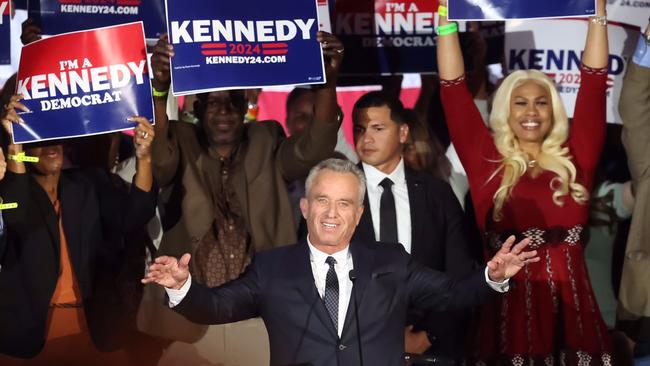
He spoke eloquently and passionately of the risk of totalitarianism in our digital age, when governments are seeking to monitor and censor speech on social media, phase out cash to make transactions traceable and implement digital vaccine passports.
“Even in Hitler’s Germany, you could cross the Alps to Switzerland. You could hide in an attic like Anne Frank did,” he said. Indeed, tyrants of the past could only dream of what governments are capable of today.
Not a single person in the audience would have inferred any disrespect towards Jews.
Yet the comment prompted a media-orchestrated deluge of confected outrage about racism and disrespect – directed at a man who has championed Israel for decades – in what was a sign of worse to come.
No candidate for US president, even Donald Trump during his first tilt, has endured the sort of relentless, unfair persecution that has dogged Kennedy’s campaign for the Democratic nomination for president next year. Ever since Kennedy, an environmental lawyer, vaccine sceptic and scion of America’s most famous political dynasty, launched his campaign in April, US media has denounced him with increasing ferocity, typically by ever more ridiculously straw-manning of his arguments and holding him to standards no other candidate would meet.
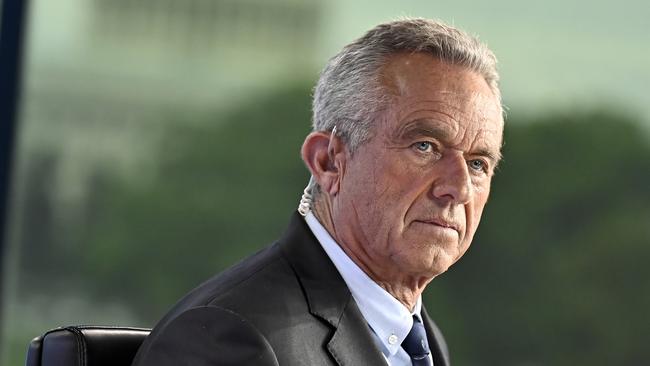
After listening to hours of Kennedy’s many long interviews since his launch, with luminaries such as Elon Musk, Jordan Peterson, Bill Maher and Joe Rogan, I’m left with the impression of an erudite, intelligent, remarkably honest candidate who stands out for refusing to personally attack his opponents, Republican or Democrat.
But that would be wrong, according to his detractors: he’s a nutcase anti-vaxxer, a liar, a stooge of former Donald Trump adviser Steve Bannon, a purveyor of misinformation and destroyer of his uncle and father’s legacy.
Beware his “long history of addiction”, The New Yorker editor David Remnick warned earlier this month, even though the 69-year-old Kennedy has been sober since he was 29.
“He should never have been a politician or a public figure at all … he’s a poser,” New York Magazine writer-at-large Rebecca Traister wrote in a lengthy diatribe last month, adding it was “terrifying” Americans were listening to him.
Far better they soak up Joe Biden’s wisdom, I suppose, than a best-selling author and environmental lawyer who has successfully won dozens of legal cases against powerful US industrial and pharmaceutical interests.
“Conspiracy and contempt tinge nearly everything he says,” columnist Matt Bai sneered in The Washington Post in May, accusing Kennedy of a “profoundly Trumpian … dark strand of populism”.
All that was kid gloves until last week, when some of Kennedy’s impromptu remarks at a press event, secretly filmed, prompted accusations of racism and anti-Semitism too. Even his sister Kerry and nephew Joe condemned him.
“There’s an argument that Covid-19 is ethnically targeted,” Kennedy said during a question-and-answer portion of a dinner at an Upper East Side Manhattan restaurant that first roused national attention for the use of flatulence by an attendee to make a point about climate change.
“We don’t know whether it was deliberate but there are papers out there that show the racial or ethnic differential and impact,” he said, referring to a peer-reviewed study, published on the National Institutes of Health website, that showed Chinese and Ashkenazi Jews had been less affected by the SARS-CoV-2 than whites and blacks.
As all hell broke loose he clarified he didn’t personally think it was a bioweapon, but the lie had crossed the world before truth had put on its boots, as Mark Twain said.
“RFK Jr might as well be a KKK Nazi,” Harvard academic Laurence Tribe tweeted to his 1.4 million followers. That Vice-President Kamala Harris had already proffered a racial dimension to Covid-19 in a 2020 tweet that stated “Black communities are disproportionately suffering from COVID-19” mattered little. If Kennedy claimed the moon was made of cheese no one would care. But his so-called conspiracy theories, which fall into two big buckets – vaccines and the CIA – are logical, factually based and persuasive.
For a start, no one has attempted to sue him for his best-selling 2021 magnum opus, The Real Anthony Fauci, a depressing chronicle of bureaucratic and corporate malfeasance in the medical arena, bought by millions and read by millions more.
Not only are US health regulators (like ours) funded in large part by vaccine manufacturers, they and their top employees personally receive royalties from approved vaccines.
At the same time, American pharmaceutical giants, which in the US have paid more than $US30bn ($43.9bn) in fines for criminal penalties for medical fraud across the past 15 years, have been exempt since 1986 from any downstream liability for injuries, no matter how grievously negligent they are.
They also don’t have to test new vaccines, unlike other new drugs, in proper long-term placebo trials, the industry’s retort (however circular) being that it’s unethical not to give the placebo group an existing vaccine.
All this, combined with the fact the number of scheduled vaccines in the US for children has grown to 72 doses of 16 vaccines – including for hepatitis B, which is sexually transmitted – up from a handful in the 1970s, should at least arouse suspicions. Kennedy is particularly scathing about Covid-19 vaccines, arguing they were greatly oversold, should never have been compelled and possibly caused more harm than good given their relatively high rate of adverse events.
Indeed, earlier this year the West Australian government issued data that suggested Covid-19 vaccines had caused injuries at a rate of 264 per 100,000 – 24 times the rate of other established vaccines. But Kennedy goes further, arguing the vaccine surge could play a role in the parallel explosion of autism in children, a medical blight for which there’s no settled explanation.
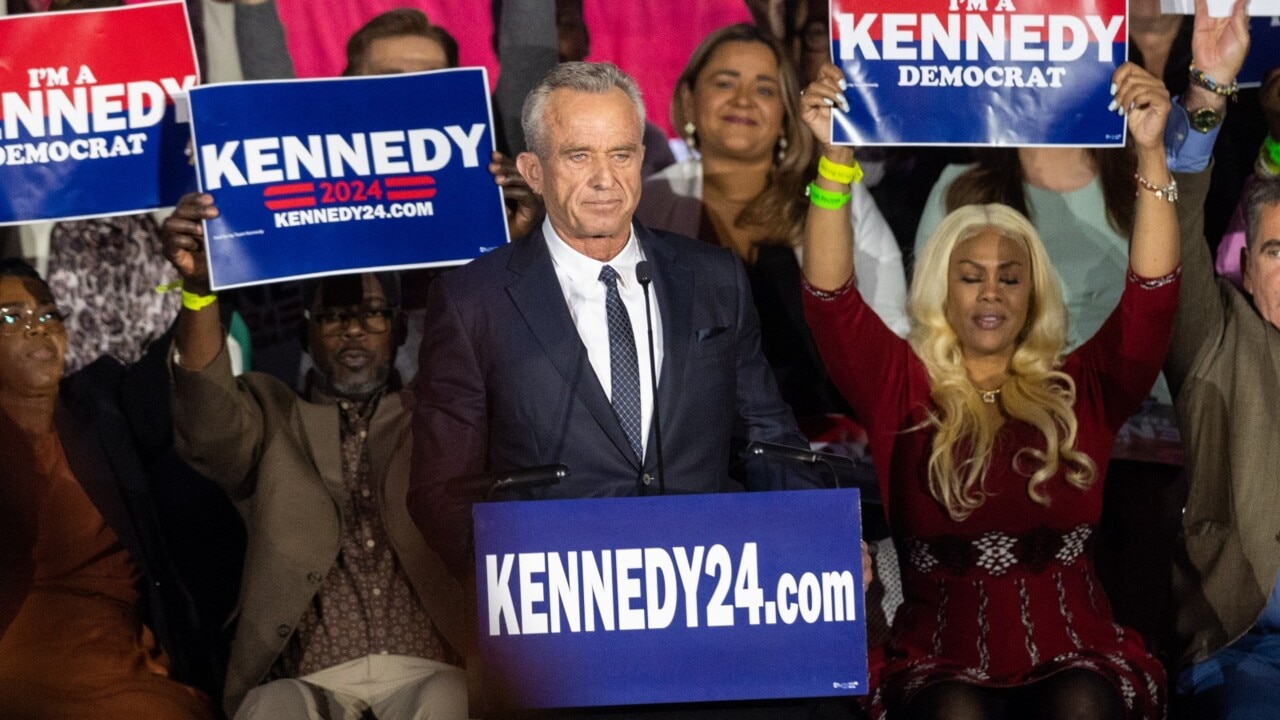
After Kennedy’s controversial three-hour interview with Rogan, Musk and other rich supporters of RFK Jr offered millions of dollars to establishment scientist Peter Hotez, a CNN regular for three years who relentlessly pushed Covid-19 vaccines, to debate the issue. Despite arguing Kennedy was “killing people”, Hotez refused the money and a mighty platform to set the record straight. After watching a debate on this topic between Kennedy and one of America’s most brilliant lawyers, Alan Dershowitz, in July 2020, it’s not hard to see why Hotez refused.
As for Kennedy’s other claims – that the explosion of antidepressants could be contributing to an increase in violent crime and that the “toxic soup of chemicals” in our food and water might explain the explosion of transgenderism among youth – I haven’t had time to investigate. It’s a credit to him that he has.
Perhaps it’s better to have a candidate with an interest in and deep knowledge of particular areas of science rather than one who couldn’t even read it, let alone form a view. In any case, who cares if he’s wrong about something? Kennedy is running to be president of a republic with a constitution he fervently believes in, one that includes numerous checks and balances, so it’s hard to see how it matters that he holds a niche view here and there.
“In the Communist countries stability of ideas and social purpose is achieved by formal adherence to an officially proclaimed doctrine,” wrote the great American economist John Kenneth Galbraith, who coined the pejorative phrase conventional wisdom to mock those supposed verities everyone knows only because everyone else says so.
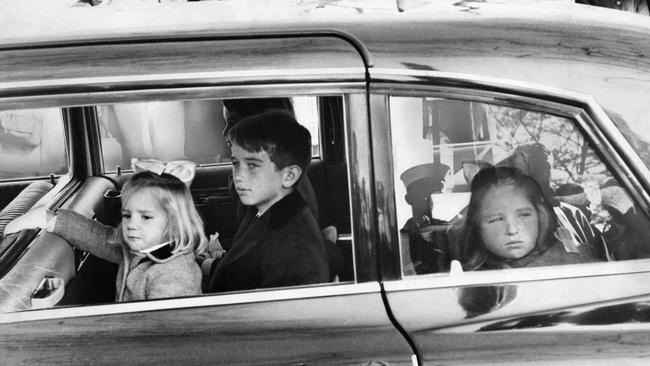
Kennedy also is pilloried for arguing the CIA was involved in the murder of his father and his uncle John F. Kennedy, a view shared, at least in relation to JFK, by leading journalists and authors for generations in dozens of books. The longer the White House delays releasing the final 4000-odd classified documents related to the US president’s 1963 assassination, even though everyone remotely connected to it has long died, the likelier it looks as if he’s going to be proved right.
“I’m a Kennedy Democrat. I believe in labour unions. I believe in a strong, robust middle class. I believe in racial justice, in policies that are going to actually help the lowest people on the totem pole,” Kennedy said recently.
The anger of establishment Democrats and their media boosters directed at Kennedy is more a reflection on how much they have changed since his father and uncle’s time. Peace (RFK Jr is opposed to escalating the war in Ukraine for a host of cogent reasons) and freedom of speech are no longer values widely shared among the ruling elite.
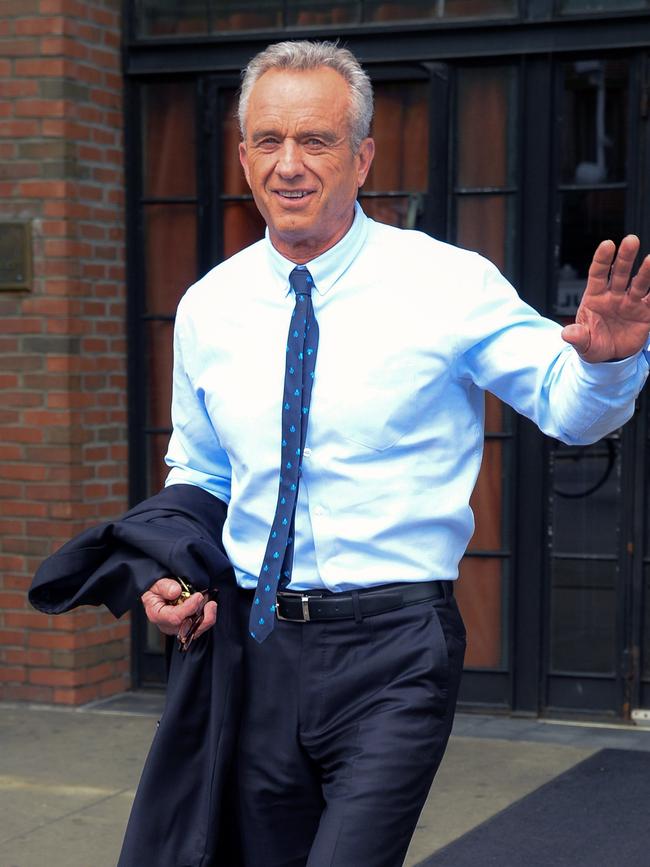
Whatever, the smears don’t appear to have damaged him yet.
American punters give Kennedy an 8 per cent chance of winning the US presidency, fourth behind Biden on 33 per cent, Trump on 28 per cent and Republican Ron DeSantis on 9 per cent, according to an average of political betting markets compiled by RealClearPolitics.
A big chunk of the US electorate, as everywhere, is desperate for a unifying leader who eschews the mindless, divisive sloganeering in which most of the other presidential candidates engage.
Kennedy is asking the right questions at the right time. How anyone can observe the past 3½ years and give our institutions – which collectively have trashed human rights, created high inflation and pushed the world towards war – a big tick is beyond me. Polls give him up to 20 per cent support among Democrats, perhaps even more among Republicans, who are drawn to his free-speech credentials if not so much his zeal to protect the environment. If he runs as an independent after losing the Democratic nomination, he could cause havoc for the major parties, and encourage more Americans to question the increasingly insidious relationship between powerful corporations and government, by far the biggest problem of our age.



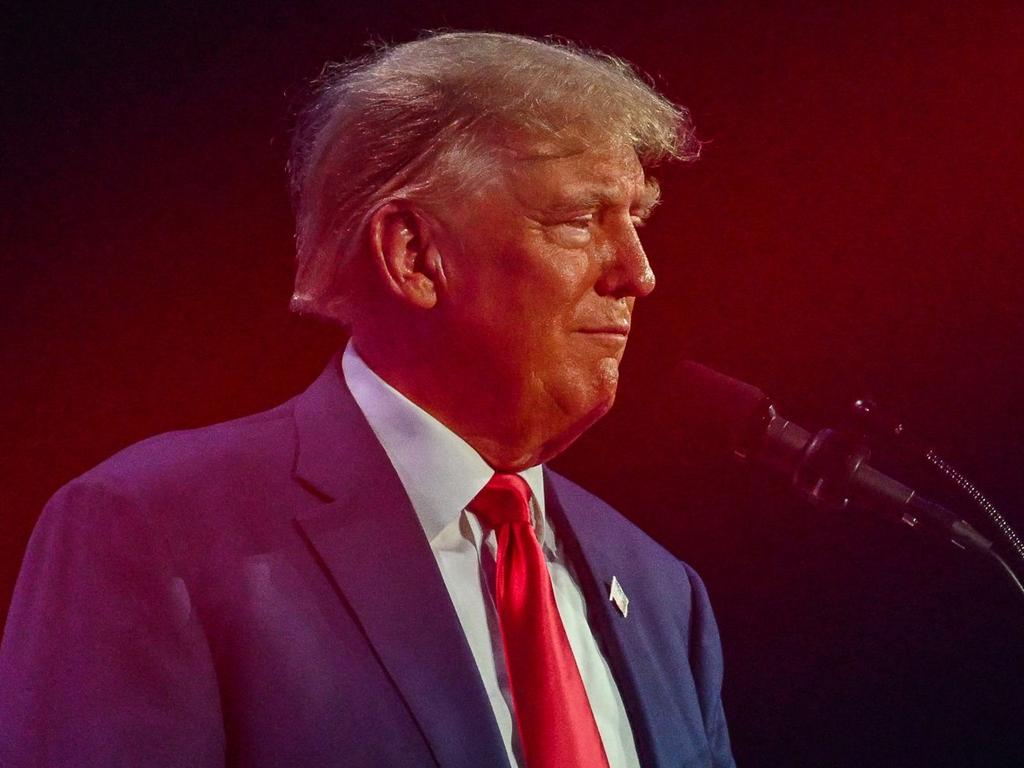




I knew little about Robert F. Kennedy Jr beyond the pejorative that he was an anti-vaxxer, until January last year when I heard him speak at a rally against lockdowns and vaccine mandates at the Lincoln Memorial in Washington.